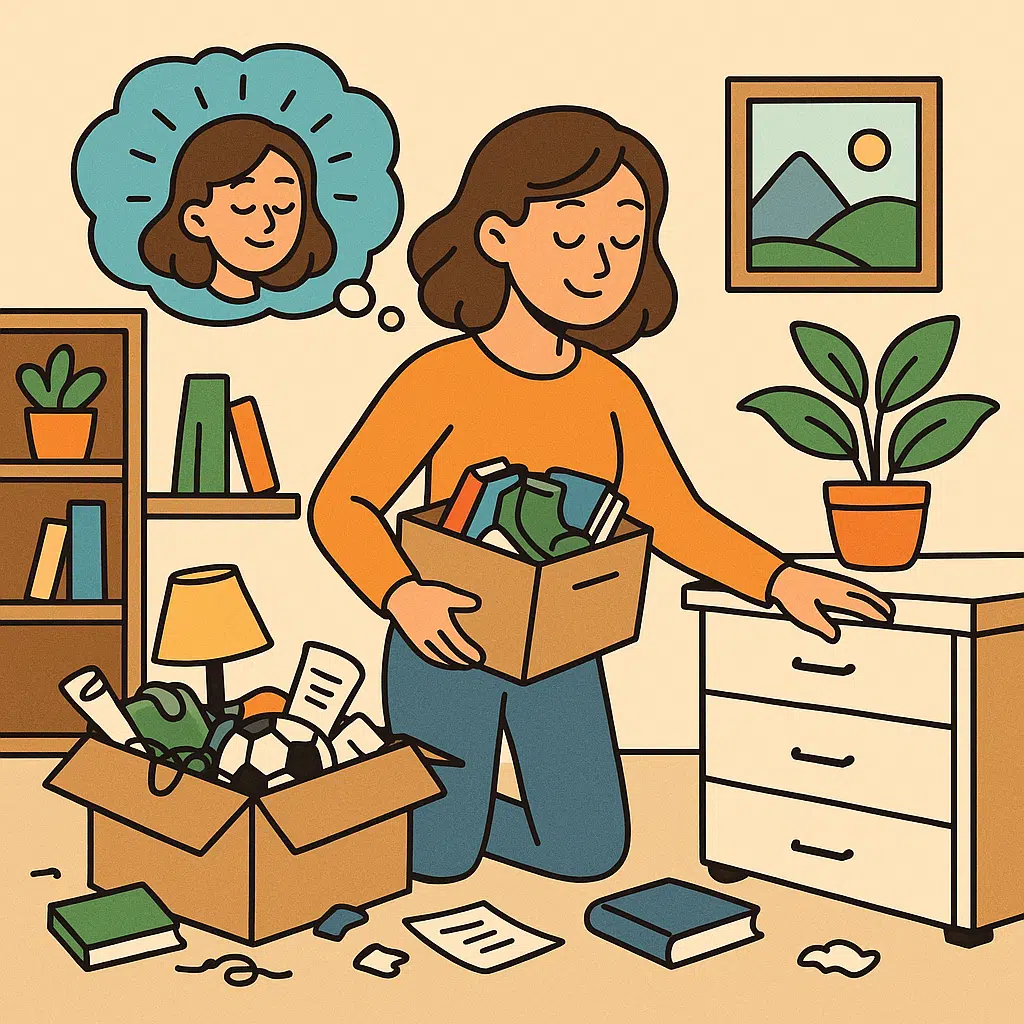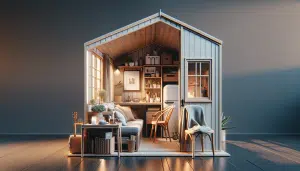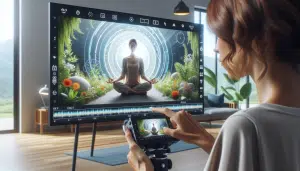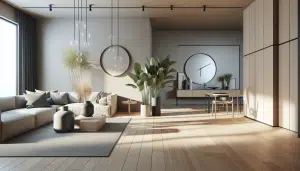How Simplifying Your Environment Leads to Mental Clarity
Lily Carter August 11, 2025
Let’s get real: clutter—from your overflowing inbox to that pile of random stuff your dog chewed on—does not equal productivity. In fact, simplifying your environment clears mental brain fog and gives you the focus boost you desperately need. That’s the secret sauce for leveling up your career without sacrificing your sanity. Simplifying your environment isn’t just a feel-good aesthetic—it’s a current hot trend backed by research and workplace success.

Hot-and-happening trends driving this
- Digital Minimalism – trimming your tech clutter.
- Mindful / Sustainable Minimalism – owning less, living more intentionally.
- Slow Living – designing your pace and physical space mindfully.
Let’s unpack how each contributes to mental clarity and career results.
1. Digital Minimalism: Your Brain’s “Do Not Disturb” Mode
You’ve heard of Cal Newport’s Digital Minimalism, but in 2025 it’s more than a buzz—it’s a survival strategy. Experts recommend purging unused apps, organizing files, muting meaningless notifications, and creating screen‑free zones at home. This isn’t war on tech—it’s smart, intentional tech.
Studies back this. For example, cutting back on smartphone use improved focus and reduced stress in experiments.
Why it matters to your career:
- Your brain spends less time in reactive mode (“ding!”—all hail alert hell) and more in creative, deep‑think territory.
- You actually decide how to use tech—as opposed to being bossed by endless pings.
Quick practical starter
- App triage: Delete or hide apps that don’t add value.
- Notification cleanse: Keep only the important ones (calendar, urgent chat).
- File purging: Declutter your desktop—under 5 things only.
- Screen fallback: Evening block? Even one hour with no phone can restore your focus batteries.
2. Mindful & Sustainable Minimalism: Less Stuff, More Headspace
You probably know minimalism as the “look with blank walls and a single plant.” But in 2025, it’s evolving—maturing, if you will.
Sustainable minimalism means choosing well-made, long-lasting items (sometimes secondhand), instead of fast and forgettable.
Being part of the “underconsumption core” means eliminating not just physical stuff, but also mental noise: overstuffed calendars, energy‑draining relationships, and media that doesn’t uplift you.
Benefits you’ll actually feel:
- Less decision fatigue (“What do I wear?” “What do I open?”).
- Stronger focus and fewer distractions—room to think.
- Sustainability bonus: better for the planet and your conscience.
Actionable moves to simplify
- One in, one out: Adopt a new item only after donating or selling something else.
- Capsule gear: Let your wardrobe, desk, tools be reliable—not trend‑fest.
- Calendar clear‑out: Drop one “maybe okay” commitment and reclaim guilt‑free time.
3. Slow Living: Intentional Spaces, Intentional Mindset
Slow living is riding high in 2025—not about quitting life, but choosing how you live it on purpose.
Part of that is simplifying your environment to encourage mindfulness at home and at work. Calm spaces lead to calm thoughts.
This aligns directly with environmental psychology: cluttered spaces trigger anxiety and overwhelm; clean, calm spaces promote clarity and focus.
That’s mental clarity meeting productivity, right there.
Make your space slow‑living friendly
- Clear surfaces: Keep only daily essentials visible on your desk.
- Nature touches: A single plant or natural material calms the senses.
- Un‑tech corners: Have one spot—preferably outside your work zone—without screens.
4. Why It All Connects: The Science and the Feel
Environmental Psychology Says…
Cluttered spaces raise cortisol (stress hormone), while clean, minimalistic settings help you relax and concentrate.
Young Adults & Nature Inside
Even if you can’t go outside, bringing natural materials indoors improved mood and sense of control. In a 2025 study, using local natural materials to transform indoor spaces lifted mental health and agency.
Career Benefits—Research-Backed
Simplified environments cut distraction and decision fatigue, freeing up your cognitive bandwidth for deep work and strategic thinking. These gains show up in better performance, creativity, and job satisfaction.
5. Step-by-Step Guide to Simplify (and Unlock Clarity + Productivity)
Here’s your no-fluff toolkit:
A. Audit Your Space & Digital Life
- Jot down your biggest irritators—cluttered desk, constant notifications, chaotic schedule.
B. Pick One Domain to Tackle First
- Choose physical, digital, or schedule. Go deep, not just surface-level.
C. Apply 3-Step Simplify Method:
- Purge: Remove what doesn’t serve your peace.
- Organize: Create go-to systems—folders, visual zones, routines.
- Anchor: Set micro-habits like nightly 5-min tidy, weekly schedule check-ins.
D. Measure Wins
- Journal: Are you thinking more clearly? Getting tasks done easier?
- Focus level: Is your attention less fractured?
- Mood: Less stress? More ease?
E. Move On to Next Area
Once you’ve got traction—say, your digital space feels cleaner—shift to another area. Carry momentum, but keep it manageable.
6. Real-World Vibe: What This Looks Like on the Ground
Say you’re an SEO content writer (like my best friend Gabby here). You simplify your desk to the laptop, notebook, and water. Digital inbox? Categorized, unsubscribed, streamlined. Your workspace invites focus, not distraction.
You do your best deep-thinking work, and before you know it, your brain isn’t drowning in noise. You write better, faster—and enjoy it. That’s career productivity born of mental clarity.
Final Thoughts
Simplifying your environment—physically, digitally, and rhythmically—is more than minimalist aesthetics or trends. In 2025, it’s about clarity, peace, and trajectory. The data backs it, mental well-being thrives, and your career gets a turbo-boost.
Want to keep things real and practical? Build micro-habits. Lean into sustainability. Remove the static from your life and let focus, creativity, and progress take center stage.
References
1. Beyond Healing Counseling (2025). Minimalism: Understanding Its Deeper Psychological Impact. https://beyondhealingcounseling.co
2. BioLife Health Center — Cindy Hamilton, BHSc, MPH (2025, April 3). Minimalism: Simplify Your Life, Declutter Your Mind. Hamilton highlights https://www.biolifehealthcenter.com/
3. Verywell Mind (2021, February 2). The Connection Between Cleanliness and Mental Health. https://www.verywellmind.com







